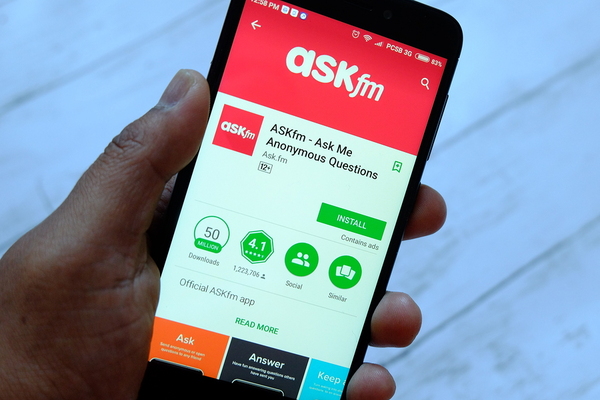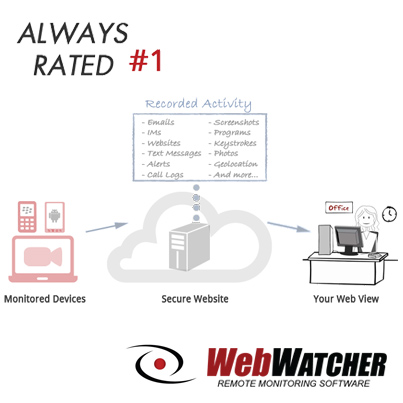If you’re the parent of a teenager, you know how difficult it can be to keep up with what they’re doing online and with the apps on their phones. But even though it’s difficult, it’s important to do your best to be aware of what your teen is doing online and what’s happening in their digital lives, because those activities can have serious impacts on their offline life as well.
ASKfm is both an app and a website, so you may see the logo on your teen’s phone or see them using the site on a computer or tablet. It’s a popular site among teens, but it has some problematic aspects and a concerning history, so if your teen is using it, it would be prudent to take a closer look. Here’s a look at a parent’s guide to ASKfm.
What Is ASKfm?
A name like ASKfm could mean almost anything, so what is this site and why do teens use it? ASKfm allows users to create a profile and link it to other social media sites like Twitter and Facebook. Users can post questions and comments to other people’s profiles, and the ASKfm site allows them to post anonymously. These questions and answers can then be shared and cross-posted to linked social media sites.
Users can follow other users, but can’t see who their followers are. You can know how many people are following you, but you can’t trace those numbers back to specific users. In addition to user-posted questions, there are daily questions posted on the site that users can answer. Users can either remain anonymous or choose to link their content to their profile. The content – both questions and answers – that users post on ASKfm is entirely unmoderated.
Why Should You Worry?

The two biggest concerns about ASKfm are the anonymity and the ability to post unmoderated content. This combination is a breeding ground for both cyberbullying and inappropriate interactions between teens and older users. Because ASKfm users can choose to reveal more information about themselves in their profiles and link to other social media sites, there’s also the risk that anonymous strangers can find out personal information about a teen user who’s chosen to reveal more than they should and also follow them to sites where they reveal even more personal information – as you can imagine, this is a situation that can get dangerous.
And these problems aren’t just theoretical, either. There’s a documented history of cyberbullying and inappropriate or negative interactions on ASKfm. The site has been around for quite a while, and as far back as 2013, there was a pattern of suicides among teens that were linked to their experiences on ASKfm. It’s not that it’s impossible to use the platform in a safe manner, but the site is problematic enough that parents should be concerned and should take action to make sure that their teens are protected if they’re using it.
What Should Parents Do?
What’s the parent of a teen using ASKfm to do? Start by deciding whether or not you want your teen to use ASKfm at all. Younger and more sensitive teens and those who have struggled with bullying or other social problems in the past may be better off steering clear. Whether you want to outright ban a site is a difficult decision – in some cases, a ban can push a teen to not only do the banned thing but also get better at hiding that they’re doing the banned thing. And when you’re worried about your teen’s safety, pushing them into hiding what they’re doing is less than ideal.
But as a parent, you know your child best. If you think that simply prohibiting them from using the site will be effective and safest for them, you can do that. Another is to talk to your teen about why they want to use the site, what the dangers are, what they hope to get from using it, and what they’re actually likely to get from using it. You may be able to guide and encourage your teen toward deciding for themselves that ASKfm is not for them.
Another option is to allow them to use it as long as they take proper safety precautions. This may be a better choice for older teens who will soon be making these decisions as adults and who need to begin making these decisions for themselves. For example, you could allow them to make an account provided that they don’t reveal any personal or identifying information in their profile, that they turn off the ability to receive anonymous questions, and that they set their own answers to private so that they don’t show up on the public stream. You can also make sure that they know how to block users and report inappropriate or harassing content. And you should ask that your teen come to you to talk about it if they’re ever a target of bullying or if they see content that upsets or frightens them.
If you allow your teen to use the site (or if you don’t allow it, but you suspect that they’re using it anyway) you should also monitor the site and their activity for yourself so that you’ll know if they’re having difficulties or being confronted with inappropriate content. Not all teens will feel comfortable bringing these kinds of interactions to their parents, and you can’t help them if you don’t know what’s going on. You shouldn’t spy on them, but checking in on their activity periodically to look for signs of trouble isn’t spying, it’s parenting in the digital age.
Computer monitoring software that is installed on your teen’s phone, computer, or other devices will give you the window into their activity that you need. Internet monitoring helps parents keep tabs on their children’s online behavior and can alert them to signs of a problem before it escalates. To find out what parental monitoring software can do for your family, get our free trial





